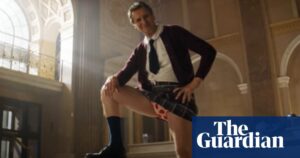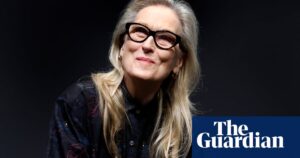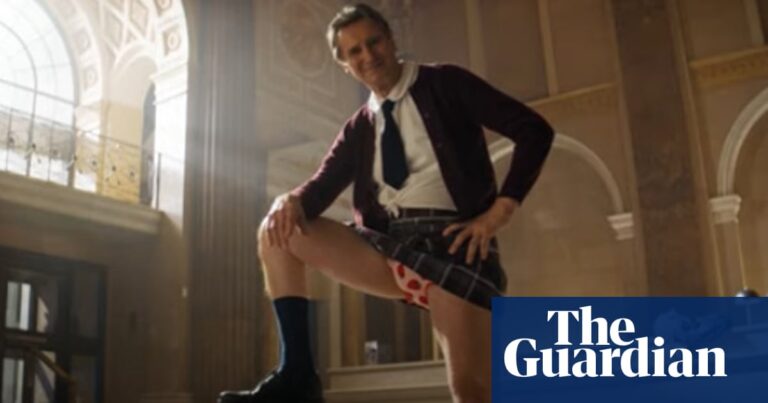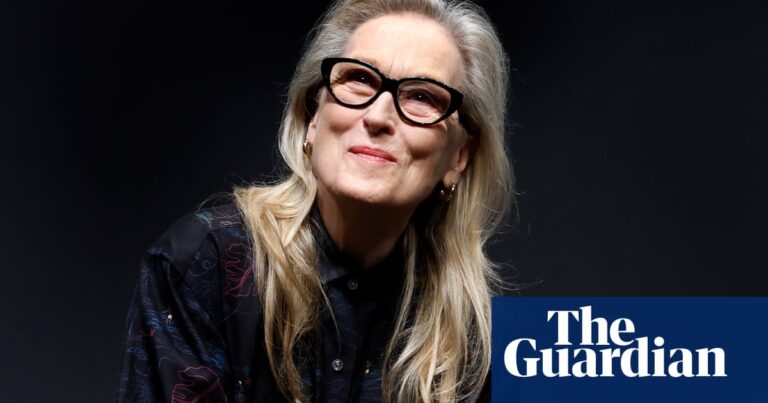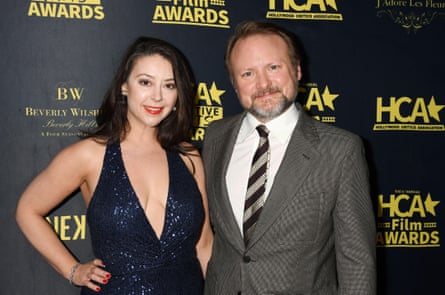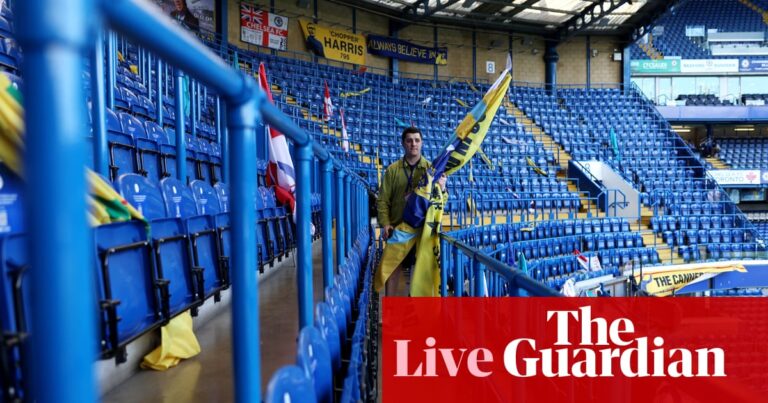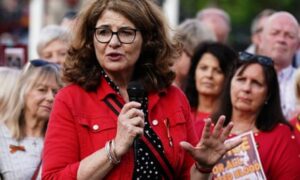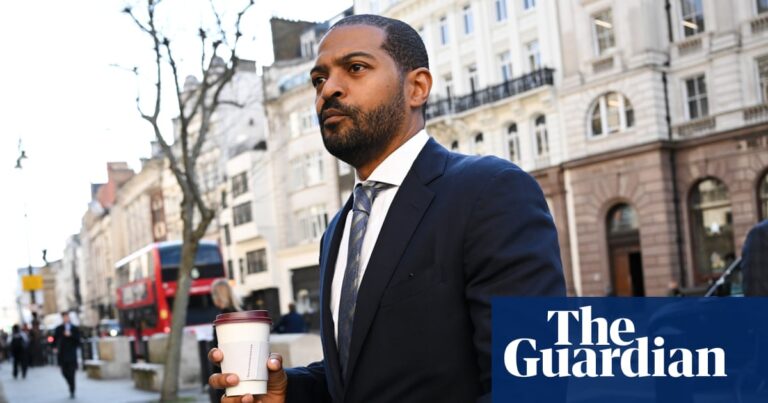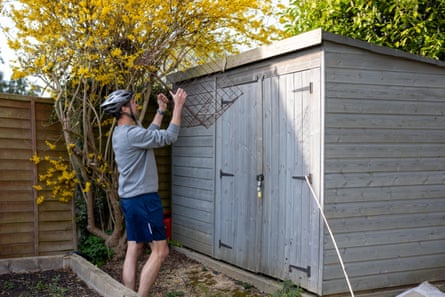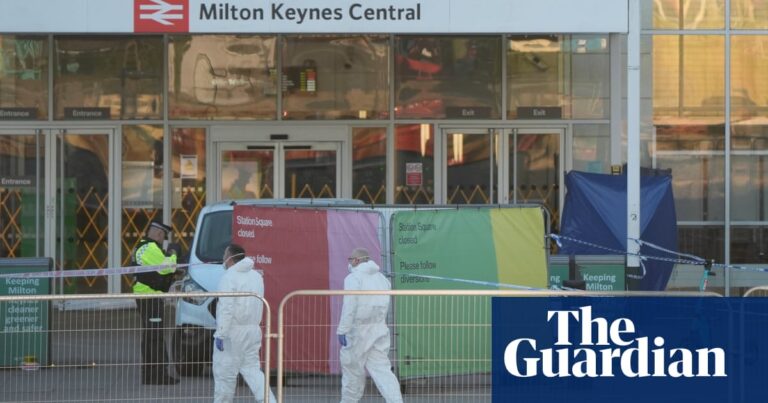In a roof garden, high above central London, stands Paul Weller, reed-slim in a pale mac, black trousers and shades. Silver hair slicked back, slight smile, lord of all he surveys. He looks so cool, it’s almost funny. Why hasn’t he put on weight? Why hasn’t he lost his hair? How come he can wear those sunglasses and not look like he’s trying too hard? Because he’s Paul Weller, that’s why. Being cool is one of Weller’s USPs, and it has been ever since the Jam’s first Top of the Pops appearance, in 1977, for In The City. He, Bruce Foxton and Rick Buckler all wore the same outfit: white shirt, skinny tie, buttoned-up black jacket, black trousers. But Weller’s haircut was better, his jacket tighter, he wore it all more convincingly. He’s had so many style iterations over the years. There are few heterosexual men who’ve tried, at different times, a slicked-back flicka, plus denim cutoffs and espadrilles, as well as a chop-fringe feather cut with sports shirt and mum slacks, and managed to look good in both. (You only have to glance at Weller’s longtime fanbase to see how tricky his looks can be to carry off.)
The other Weller USP is, of course, his music. He’s had No 1 albums in five consecutive decades, as the Jam, the Style Council and as a solo act; made scratchy R&B, punchy pop, tuneful Euro-soul, as well as house music, folk, psychedelia… In his youth, his creativity was hidebound by tight rules handed down by an unseen Mod God, but since 2008’s 22 Dreams, he’s pretty much done what he likes. He works hard and he works a lot.
Photos done, quick cig, then, wired as ever: “How long we got?” he wonders, about the interview. Weller’s always on a schedule. No time-wasters, get it done, move on. We perch at an indoor-outdoor table, the spring air blowing through the bar. He leans forward, not tense, but ready.
Two days ago, and the day before his 66th birthday, he released 66, his 17th solo LP. It was named, in part, as a nod to his birthday, but also because, says Weller, 1966 was a good year. “Tomorrow Never Knows [by the Beatles; the last track on Revolver] was 1966,” he says, “and that’s still yet to be bettered, in terms of forward-looking, futuristic sound. And football, the only year we won the World Cup.”
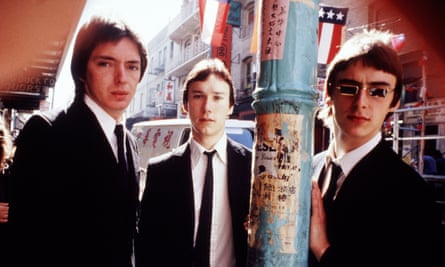
Which is nice, but, really, not much is ’66-ish about the album itself. It boasts a cover by celebrated 60s artist Sir Peter Blake, but, if we’re being picky, the album cover that made Blake’s name was for Sgt Pepper’s Lonely Hearts Club Band, and that came out in 1967. And like many of Weller’s recent LPs, there isn’t really an underlying conceptual idea; it’s simply what he calls “a collection of songs”, whittled down from around 30 created over the past three years. If you were looking for a theme, then you might find it in the album’s sonic atmosphere, which is lush, romantic, a little jazz noir, a lot of yearning. There are sparkling strings, the occasional harp. “I see it as my crooner album,” says Weller. “Me in a velvet bow tie. Cabaret. Stockton-on-Tees, here I come.”
He’s joking, though his voice has definitely become more soulful over the years. Plus, the joke makes more sense when you know how some of the songs were written. There are several well-known contributors to 66 – Noel Gallagher, Bobby Gillespie, Suggs, Dr Robert, Erland Cooper – but they’re not singing or playing. Instead, they’re there as lyricists; so perhaps Weller is a bit like a crooner, in that, on certain songs, even though he wrote the music, he’s interpreting other people’s words.
It’s quite unusual to get other people to write lyrics for you, rather than sing a chorus, or play a solo, I say. He shrugs: “I got sick of trying to find different ways of saying exactly the same thing. The older I’ve got, the less I’ve got to say.” He rubs his face. Though he loves a chat, the bits of his job that Weller finds difficult are to do with words: lyrics and interviews. “I’ve spent years trying to explain,” he says. ‘Why did you write this?’ I don’t know.” At least with these lyrics, it’s someone else’s ideas, I say. “It’s a get-out clause,” he says. “You can ask me what the words mean and I can say, ‘I dunno, you’ll have to ask them. They wrote it.’”
Despite this, we chat about a couple. First, Soul Wandering, words written by Bobby Gillespie, along the lines of “I’m still searching for meaning and want to believe in something greater than me.” Weller “totally related” to the sentiment. “Maybe it’s an age thing,” he says. “When you see the state of the world, what a mess it all is. It’s about having something to hold on to, I think. You haven’t got to be a Christian, you just have faith in something else beyond the cruelty and the disgusting behaviour of the humans. Look for the good in things.”
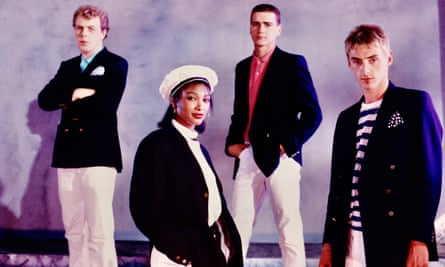
And there’s Nothing, a dreamy late-night jazz affair that recalls an old relationship when it was young and “we had nothing”. This started with “a beautiful poem”, written by a mate of Suggs called Chalky; it fitted perfectly with some music Weller had already made. “I found the words really touching,” he says. “They could be about a lot of things and, for me, I related them to my family growing up. We had fuck all, but we had fun and jokes and love, and what you don’t have, you don’t miss anyway, do you? We had each other.”
Weller grew up in Woking, Surrey, with his sister, his taxi-driver dad and his cleaner mum, and started in bands during his teens, playing covers at working men’s clubs. His dad became his manager and once Weller got the Jam together, success came quickly. From the late 70s until the late 80s, he banged through the jittery, political Jam and more soulful, jazz-tinged Style Council, clocking up hit after hit, before losing his record deal and having to recalibrate. Those wilderness years taught him a lot – his dad made him go back on the road, because he needed to earn; he found that playing live led to him writing songs again – and since his huge solo come-back, with 1993’s Wild Wood, he’s never stopped.
He knows what he wants to do, Weller, and he’s clear-eyed in his approach and his assessment of his own talents. He thinks his strong points are his voice and his “gift for melody”; he says he’s written some good lyrics, but not that many, and he’s an all-right guitarist. “I can’t get above a certain standard, but I practise.” Oh, and he thinks he’s good live, as long as the gig isn’t too big. He was one of the support acts for Blur at Wembley Stadium last summer and he found it a bit weird. Arena gigs, generally, are not his thing, watching the band on a big screen, the sound all washy because you’re miles from the stage. “It’s a night out for a lot of people, isn’t it? Their one big night out,” he says. “And that’s when it becomes a show, not about the music. It’s really hard to make contact and I’m not cut out for that. It’s not like I’m crowd surfing or putting the mic up for the crowd to sing lalala and all that.”
What about festivals, does he enjoy playing them? Or going, even?
“I’ve only been at festivals when they pay me,” he says, appalled. “They wouldn’t entice me otherwise. Stand in a field of mud and shit for hours, off my face? Doesn’t appeal to me. Call me old-fashioned. I just like a roof on it.”
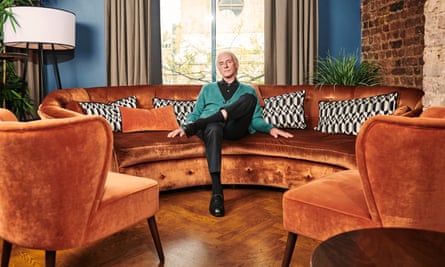
Weller seemed in his element when I saw him play at Shepherd’s Bush Empire a few weeks ago and he’s like that when I talk to him, too. Though he’ll never be completely relaxed – he’s naturally impatient and twitchy; he still smokes like it’s the last fag before his execution – right at the moment, he’s extremely content with his lot. His older kids are doing well and his younger ones are a source of joy. He has a big brood: Natt, 36, lives in LA and directs short films; singer Leah, 32, has two children, one a new-born (he shows me a sweet snap of him holding his brand new granddaughter, Kiyo Soul); Dylan, 29, works in the New York fashion industry; Jesamine, 24, is at uni, studying mental-health nursing, and Stevie, 19, is into skateboarding, and teaches it as well.
At home, there are his kids with his wife of 14 years, Hannah (they met when she was a backing singer for his 22 Dreams album). So, 12-year-old twins JP (John Paul) and Bowie, who are “chalk and cheese”. Bowie is hugely into football; JP is not, but is just “good at everything”. And Nova, seven, is “a mad creative person, eccentric, but I love it. She never gets bored, she’s always building, creating, a real character”. The younger ones are home-schooled and have lots of friends “from all walks of life, different friends from different situations”.
We talk about his working-class roots and I ask what class he thinks his kids are. “I feel they’re classless, personally. They’re outside all that. As they should be. Classless and free,” he says. “Me and my missus are the same, she comes from a council estate. So they grew up having that perspective, but they don’t go through that experience. That’s the difference. Hopefully they grow up with the ethic that we have, that you have to work for things. As long as they’re not – what’s the word? – entitled.”
Weller himself is far from entitled. “I’m so lucky to be able to do what I do.” He enjoys his time with his family. He loves his job. You could say he’s reached his mellow stage, except he expresses his contentment in an entirely un-mellow manner. “If the universe took me tomorrow,” he says, “which hopefully it won’t, but if it did, I couldn’t really fucking complain.” He’s found that not drinking for 14 years has really helped; not just because of the lack of hangovers, but because it’s made him “discard all the crap” he once thought was part of his personality. “A lot of the demons I thought were there just disappeared once I stopped drinking. So perhaps they were all in that bottle. All imagined. A little safety blanket.”
after newsletter promotion
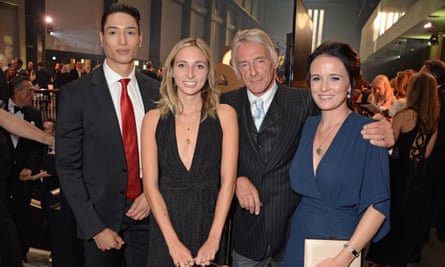
His anger hasn’t evaporated completely. At his gig, I noticed he had a Palestinian flag on display, though he made no mention of it during the performance. When I bring it up, he’s more than happy to talk. “Am I against genocides and ethnic cleansing? Yes, I am, funnily enough,” he says. “I can’t understand why more people aren’t up in arms about what’s going on. We should be ashamed of ourselves, I think. One minute you’re supplying bullets and bombs and guns, and then you’re sending over food. How does that work?”
He’s still pretty fired up about the state of the UK, too. I mention a few politicians – Keir Starmer, Rishi Sunak, even Nigel Farage – have been spotted in old-school Adidas Samba and Gazelle trainers. “Were they wearing them with a suit?” he asks. (Starmer wasn’t; Farage was; Sunak was in suit trousers and a white shirt.) “That’s not right, is it? But anyway, fuck all the people you mentioned. Mugs, all of them.” He liked Corbyn, but isn’t too fussed about Starmer. He can’t see much difference between the parties: “You can either vote for Rishi Sunak’s Tory party, or you can vote for Keir Starmer’s Tory party.” He probably won’t vote at all, though he does like “Angela something, the one who’s a normal working-class mum.” Angela Rayner? “Yeah, that’s her.”
“The corruptness and cronyism, and the lies and deceit of most of those politicians…” he says. “They’re supposed to be your betters, your leaders. But they’ve been selling off the periphery of the NHS for years and let it fall into disrepair, and it’s going to get eaten away and eaten away until it’s off their hands, and it’s all privatised. And that’s one of our crown jewels, the NHS. It’s supposed to be ours, we all pay for it. It’s a total piss-take… People are getting to that point where they think, “You’ve just got to do it for yourself.” Whether that’s a revolution or not, I don’t know.”
What gives him hope, outside his family, is music, of course. He’s still hugely engaged with it, and talks to me about Liam Bailey, Vegyn, Summer Pearl, Yussef Dayes, Ezra Collective. He went to see Soft Launch recently. “I was right at the back. The crowd were all like, way, way younger than me, but it was great. There was a genuine excitement. I haven’t seen that for a long time. Even some girls sort of screaming a little bit. I was like, ‘That’s fucking brilliant.’”

Soft Launch are supposedly part of a new Britpop scene, I say, and we discuss 90s music. He preferred the 90s, generally, to the 80s, when he felt he didn’t fit in so well. “Hair was big, shoulder pads, success, everything was massive. A decade of excess.” Plus, he found himself, as he puts it, on the wrong side of the glass – in the production room with the buttons and switches, rather than in the live room with the instruments, playing. But in the early 90s, he says, “the music was more interesting. I got turned on to so much music at that time as well. I dropped all my blinkers, a real education.” He went to the Fez, in Paddington, to Giles Peterson’s night, he remembers, and to Dingwalls to hear Norman Jay.
And the fashion suited him more, of course. Idly, I wonder if he’s ever bought any clothes that turned out to look bad. I assume not, but he insists he has.
“I’m attracted by colours, right? My favourite colour is red, but it doesn’t really work because it’s hard to wear,” he says. “But sometimes I’ll walk into a shop and there’s a red jumper or something and I think, ‘I’ve got to have that.’ I’ve bought loads of rubbish.”
What’s the worst thing you’ve bought?
“I bought this mesh T-shirt, a sort of string thing, but black. I thought it was really cool, right? I saw Steve Marriott wear a white one, so I thought it was mod, but it wasn’t. I put it on, and Hannah and the kids were like, ‘What the fuck is that?’”
Even you would find it hard to carry off a string vest, I say.
“I’m trying to be a bit more selective in my old age. But I keep getting attracted to the bright colours!”
Paul Weller’s latest album, 66, is out now on Polydor Records (paulweller.com)
Source: theguardian.com


